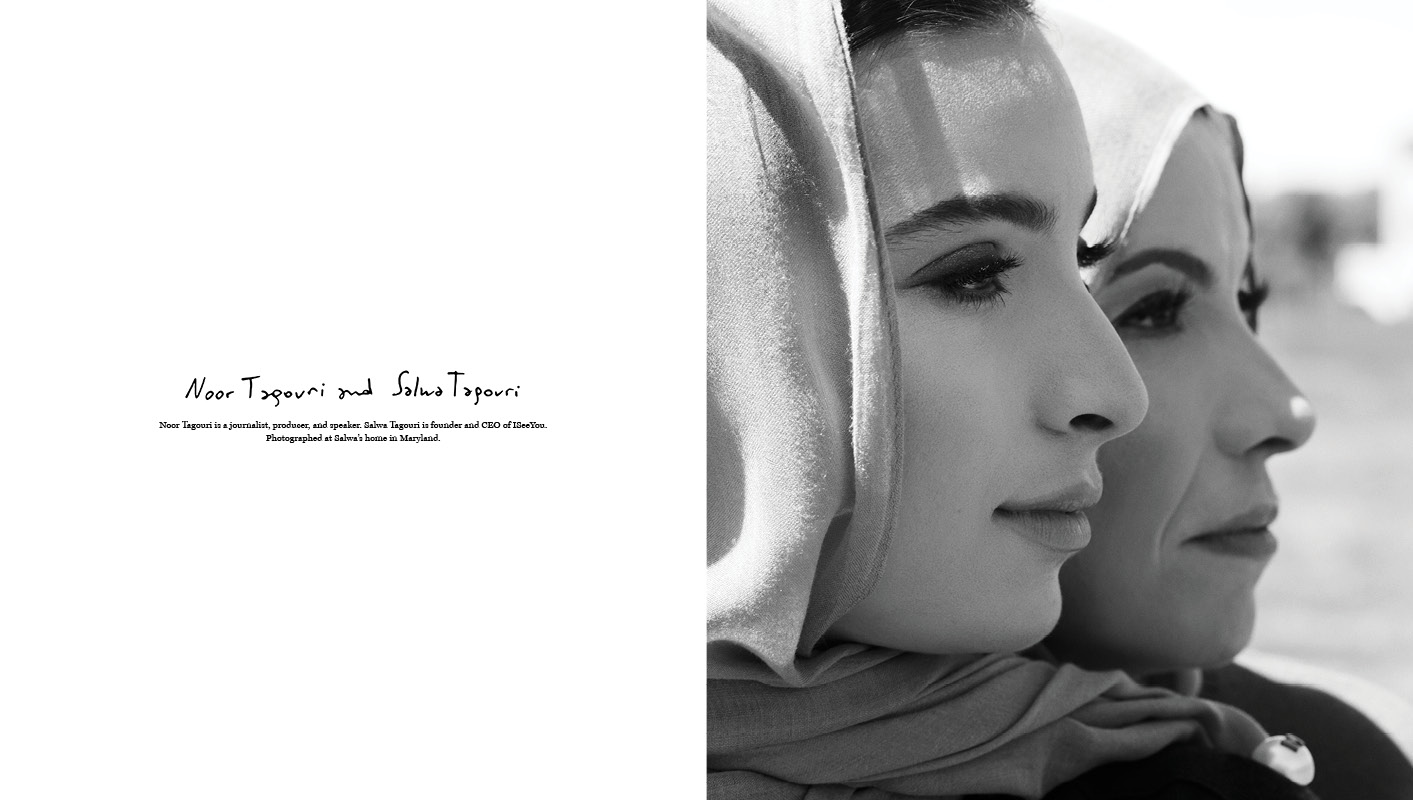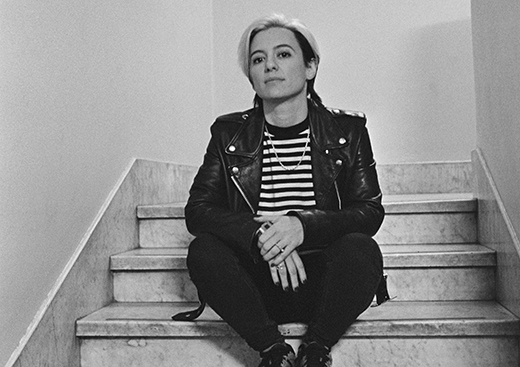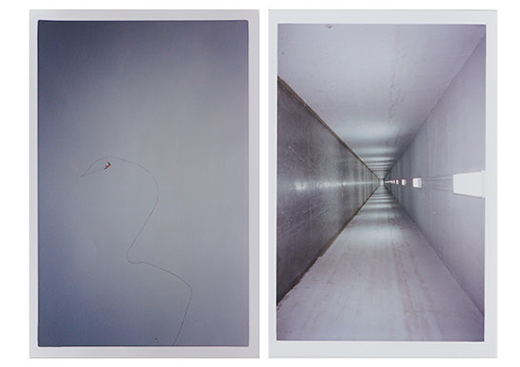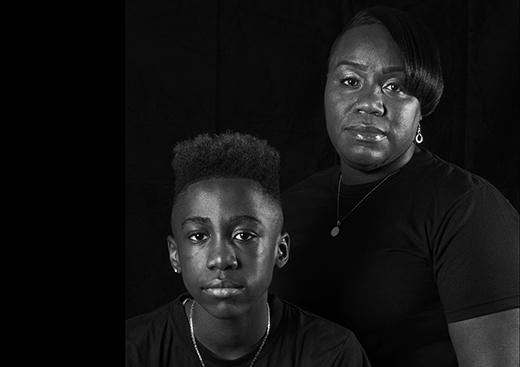Noor Tagouri is a Libyan American journalist, activist and motivational speaker. Her mother, Salwa Tagouri, is the founder of the ISeeYou Foundation. ISeeYou is a nonprofit organization focused on alleviating local homelessness and restoring dignity, compassion and respect. I met Noor during a photo shoot and right away we started talking and bonding about many points of view, especially concerning women. She is very passionate and is always encouraging women to believe in themselves. After the photo shoot I told her that I was sure we will work together in the future. A few months later, we met to talk about the HUMANITY project. She told me that she always wanted to do something with her mother, to express thanks for all the things she had done for her and for others and for inspiring her and encouraging her to be who she is now. So I went to Maryland to meet Noor and Salwa at their family home. It was beautiful to see the love. They made me feel as if I was a family member, and after taking the photographs, Salwa invited us to stay for lunch. So I turned on the voice recorder on my iPhone and we started to talk while she was cooking the most delicious and nourishing meal.
SALWA TAGOURI: Let’s do this interview here in the kitchen so then we can cook and talk.
PAOLA KUDACKI: Oh wow, OK! So you have five kids and Noor is your first one?
NOOR TAGOURI: Yes, she had me when she was 22.
SALWA: My little doll. Yes.
PAOLA: Where were you born?
NOOR: In West Virginia.
SALWA: I got married in Virginia. Then went to West Virginia. And right after I got married, I got pregnant.
NOOR: And then she cried …
SALWA: It is true. I was hysterically crying, but if I knew I was going to have you, I wouldn’t have.
PAOLA: Where did you and your husband meet?
SALWA: In Virginia, through family friends.
PAOLA: And when did you come to America?
SALWA: I came to America when I was 11.
NOOR: Yes, she grew up here, but my dad came when he was 27.
SALWA: 26.
NOOR: 26. My whole life I’ve said 27. I’ve been lying.
PAOLA: Where were you born?
SALWA: In Libya.
NOOR: She was born in the governor’s mansion in Libya. My grandpa was the governor.
PAOLA: Oh my God. Look at that salmon. This is such a treat, Salwa.
NOOR: She went to culinary school and she also was a guidance counselor. And then she went to learn Spanish.
PAOLA: Noor, tell me about your memories growing up.
NOOR: We grew up in a very small, conservative white town. I remember my mom and dad taking me every summer on a family vacation. I remember my mom would pack me a homemade lunch every day. I remember thinking my lunch was better than everyone else’s because she took so much time making it.
I have a good old journal—at least until high school, my mom and I would write notes to each other and then we would put them in the lunch box and we would never talk about it. Then I would write her a letter, and then she would write me a letter.
PAOLA: That’s so beautiful. How was your relationship with your parents?
NOOR: My parents would put me in school camps; if there was anything I was ever interested in, they would always encourage me, “Try it, try it, try it.” They put me in every writing camp, reading camp, journalism camp, TV camp, everything.
PAOLA: Do you think that is where your passion for journalism began?
NOOR: I just knew I loved to tell stories and ask questions.
PAOLA: Were you the kind of child that asks a lot of questions?
NOOR: I was so curious. I would ask everyone questions.
SALWA: Recently my daughter for my birthday gave me an old VHS. We got to see when Noor was young, and without realizing it, she’s talking about the news, recording the news when she was a kid.
PAOLA: Was she holding a fake microphone?
SALWA: Yes, she was. Always holding the mic while talking.
PAOLA: How old was she when she started talking?
SALWA: Talking, a year. Actually in less than a year. She walked at 10 months. You know how you read birthing books and it says, “You’re going to be in labor for 13 hours because it’s your first baby” and this and that. With her, five hours. My doctor had to catch her because she didn’t want to wait to come out. That’s how fast she was.
NOOR: Here I am still—bam, bam, bam.
PAOLA: What are your values as a mother, the values that you teach your kids?
SALWA: Oh my gosh, everything. Basically our religion dictates so much. No cheating, no lying …
NOOR: I think you always taught by example, like this is how you should be, but not telling us …
SALWA: It is true. I can never remember sitting my kids down and saying, “OK, you can’t do this. You can’t do that.” I don’t think kids respect that. It doesn’t stick with them.
NOOR: I mean, I think you teach character more from a positive way—this is how you should be giving.
SALWA: Kindness is a big deal. Even now with my little boy. We read a book that talked about an invisible bucket that everybody has on top of their head, and so when you’re mean to somebody or when you bully somebody that bucket is empty, and they feel bad about themselves. If you’re a kind person you say kind words: “Oh, you look nice today.” Then a drop of water comes into that bucket, so you’re filling somebody else’s bucket. Right now, when I drop him off in school, I’m like, “Yasim, is your bucket full?” Then he’ll say, “Yes.” Then I’ll say, “Are you going to go fill other people’s bucket?” He’s like, “Yes, yes.” Then it teaches him to go and be nice to others, be kind to others. It’s a really neat book.
NOOR: For example, when we would do the grocery runs to the shelter, you always said, “Don’t ever think that you’re doing people a favor, the fact that you have the opportunity to do this. They’re giving to you.”
SALWA: Yes, absolutely. I really feel strongly about that. The fact that we’re in a position to help other people is already a big blessing, and the fact that you’re entering these people’s lives feels good and it’s just the right thing to do. Our religion says you can’t be thankful by just saying “Alhamdulillah,” which means “thank you, God.” You have to show you’re thankful.
PAOLA: I read something you said—that when you’re confused about what to do, combine your skills and talents with what causes you pain.
NOOR: Yes, I think that’s my definition of passion or finding what your passion or your purpose is, combining your skills and talents with the causes that pain you the most, because then you get to live for those things and you get to do them. For me, if it was storytelling and speaking and asking questions, combining that with the right misrepresentation of marginalized communities, then I could use that to go and to represent those communities properly. Or knowing stories of violence against women, I was able to do something like Sold in America [her investigative documentary and podcast] or what we do with the homeless in our organization ISeeYou.
PAOLA: So you made a career following your passion, even though there was not a precedent of a reporter in America wearing a hijab.
NOOR: Yes. It’s so interesting because my mentors, who tried to help me get into television, always say “I can’t believe you made it your own way.” I created a career that doesn’t exist.
I knew I was good at what I did, and I cared so much. I was just real. I dressed the way that I dress. I spoke in my own voice. I learned how to connect with people in a way that I felt they deserved and not just people coming in and saying, “Hey, give me your story.” When you go back to that kid in yourself and you realize that you knew this whole time exactly who you wanted to be, you just have to tap into that.
A huge part of that for me is surrounding myself with people who I can learn from, who are positive and are rooting for you. Then finding service in everything that you do, because when you realize that, your purpose is bigger than just yourself. I realized that you can do small things that have a big impact.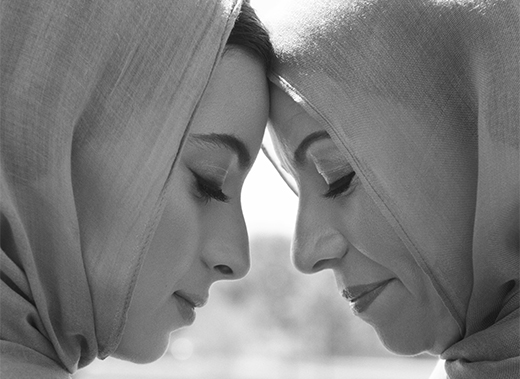
PAOLA: Noor, when did you start wearing the hijab? When are you supposed to start wearing it?
NOOR: Technically when you hit puberty is when you’re supposed to start wearing it. I decided to wear it when I was 15 turning 16. I put it on and nobody thought I was going to keep it on because I used to say, “I’m never gonna wear it.” And I remember my mom saying, “I don’t care. Either way, if you put it on or if you don’t put it on, it doesn’t matter to me. I’m happy you are trying to find yourself.”
PAOLA: You were a bit of a rebel.
SALWA: She was a rebel.
NOOR: I was definitely a rebel but I always wanted to be on TV, and nobody on TV had it on, so …
PAOLA: You felt that you were not going to fit in?
SALWA: It’s funny how in the world in general the focus is always on what the woman is wearing.
PAOLA: Let us live.
SALWA: I know. Let the woman decide for herself what she wants to put on her head or her body, and same thing goes for abortion—it’s our bodies, our choice.
NOOR: People love controlling women’s bodies. To me, if you’re going to say freedom of expression, freedom of religion, then let people do what they want. I was in North Carolina recently, and I had another incident where the event that I was speaking at was threatened. Somebody said that no one was going to get out of that event alive and that Muslims were all going to die tonight. It was all over the news.
PAOLA: What will be your message for younger generations of women—your message of hope?
SALWA: That love will always trump hate. I always feel there’s more love in the world than hate. I know the media amplifies now all the hate crimes and the bombings and this and that, but I always feel people are good and there’s more love than hate. If you are kind, it comes back to you. The thing is now, with all the problems in the world, whenever you feel like, “Oh, it’s so hopeless and the world is doomed,” you do something about it, one act at a time.
NOOR: She’s not negative, ever.
SALWA: You have to be positive.
PAOLA: We have so much to learn from you.
NOOR: She always said that. Even when something bad would happen, she would always find the good thing in it. Unless you mess with her kids, then …
SALWA: It’s true, I’m nice unless you hurt my kids. Then you might see a different side. I can’t help it. I am Mama Bear.
PAOLA: I mean, if we will all do little things, we will make a better world. How would you imagine the ideal world?
NOOR: What would an ideal world be? That’s so hard. I think an ideal world would just be where people were kind and everyone had their basic needs. Then you build from there.
SALWA: Everybody has a roof over their head.
NOOR: A roof over their head and clean food. In an ideal world, we would not be putting GMOs or chemicals in our food anymore and we would learn to heal ourselves with what we were given in the ground and people lived with compassion toward however you practice. Where we were more interested in our differences because we’re curious and we wanted to know more and learn more than fear them. That would be ideal.
PAOLA: I want to live in that world.
NOOR: Me too.
SALWA: Let’s make it. I’d always tell my husband, if women ruled the world we would have that world we are talking about.
NOOR: That’s so true.
SALWA: I think there should be women leaders.
NOOR: Yes, agree. Strengths come from being a woman.
SALWA: They used to say all women shouldn’t be leaders because they are emotional. As a matter of fact, I think that’s a plus because when you’re emotional, then you’re in touch with everybody else’s feelings.
Look at the New Zealand prime minister. How she brings her country together in unity, whether you’re brown, black, blue or whatever you are. That’s a woman, a mother. She has a baby; she has empathy for the people. I think we need more women leaders. I think women are more compassionate. We’re humans. You shouldn’t be cold; you shouldn’t be without emotion or empathy for others.
PAOLA: Compassion is the answer for happiness. Thank you for your kindness and for having us in your home. And thank you for this delicious food and inspiring conversation.
NOOR: You’re very welcome.
PAOLA: I hope I can come back in the future.
SALWA: Anytime.
—


